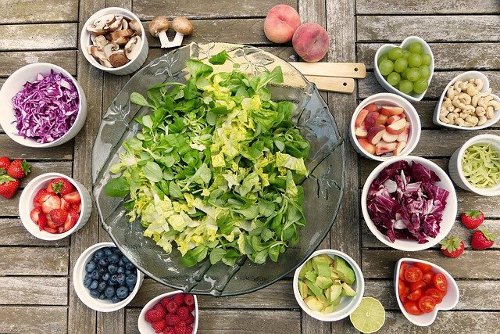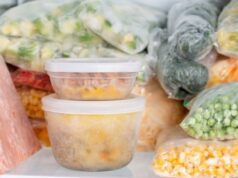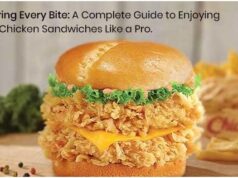Eating a balanced diet is essential at all times, and further so when a woman is pregnant. Nurturing your body at the same time helping your baby grow with all the essential nourishment becomes a routine for nine months. Eating for two means packing in nutrients twice, which can be quite challenging at the beginning with your appetite still catching up to your pregnancy diet. So here is a list of foods that are packed with nutrition and the foods that you should avoid during pregnancy, which will make for a healthy diet.


Foods to Eat
Protein
Lean meats, fish, chicken, eggs, quinoa, lentils, tofu, soy, beans, seeds, nuts, and nut butter are all great source of proteins essential for pregnant women. Fish is a major source of omega-3 fatty acids that helps in the brain development of the baby. While fish is a power food for pregnancy, it is important to know the varieties that contain high levels of mercury present in them. The high mercury content has the potential to affect the nervous system of the baby. Hence it is advised to check the mercury levels of the fish before consuming it, as fish like shark, swordfish, tilefish have higher mercury traces in them than light tuna, salmon, pollack, catfish or shrimp.
Folate or Folic Acid
Folate or folic acid is another important nutrient in a pregnant woman’s diet. Folic acid is the supplement form of vitamin B which is found in foods like lentils, spinach, etc. According to What To Expect, “Because the benefit of folate is so significant — and most effective very early in pregnancy (usually before you even knows you’ve conceived) — most cereal, pasta, bread and rice products are now fortified with folic acid, and it’s a major ingredient in prenatal supplements.” Folate plays a vital role in forming the brain and the nervous system of the baby and guards against neural-tube defects such as spina bifida.
Iron
Iron helps in making hemoglobin which is the oxygen carrier of the body and the main protein in the red blood cells. So, the need for hemoglobin increases during pregnancy as the body starts producing 50% more blood. While most women plan pregnancy by starting off on iron supplements to meet the future requirements for their body, particularly post the first trimester.
Iron deficiency can lead to a lot of complications during pregnancy such as low anemia, underweight baby, stillbirth, premature baby. Foods like apricots, whole grains, green vegetables, meats, oysters, salmon, legumes, seeds and meats like pork, lamb, etc. are a great source of iron.
Foods to Avoid
Alcohol and Caffeine
Alcohol is not advisable during pregnancy as the capacity of a fetus’ liver to process alcohol is absent. Alcohol can harm the development of your baby and cause complications like Fetal Alcohol Syndrome. Hence doctors recommend mothers to completely avoid drinking during their pregnancy.
Caffeine, stimulant of the nervous system is another category in foods and drinks to avoid during pregnancy. Coffee and tea are not the only sources of caffeine we consume. Chocolate, energy drinks, sodas, etc. have caffeine in them. Complications like miscarriage and under-weight baby are attached to the excess consumption of caffeine. However, you can still enjoy your cup of coffee as you can consume below 200 milligrams per day.
Calories, Cheese and Undercooked Foods
Avoid empty calorie intake which does not help in nourishing your body but only adds weight to your body, which is unhealthy. Calorie intake in the form of cookies, cakes, chips, and other junk food fill up your stomach but give very minimal nutrition.
Cheese varieties like feta, Brie or Gorgonzola were earlier termed as harmful for consumption by pregnant women as it caused listeriosis leading to stillbirth, premature baby and miscarriage. FDA now allows soft cheese for pregnant women if the milk is pasteurized. Pasteurization kills all the harmful bacteria, especially listeria which creates complications during pregnancy. Hence it is very important to check the label before consuming cheese.
You might like your steak medium or rare but during pregnancy, it is advised to only consume well-cooked meats to avoid bacteria and other parasites which are not good for the health of your baby. Salmonella, Toxoplasma, Listeria, and E.coli can create complications like neurological defects, epilepsy, blindness, intellectual disability or stillbirth. Not just meats but even raw eggs contain bacteria and must be consumed cooked at all times to avoid the risk of infecting your baby. Avoid deli meats or junk food meats and prefer well-cooked, fresh meats to consume meats in a healthy way.
Apart from all of this ask your health care expert to prescribe supplements that are best suited according to your body. There are supplements for iron, zinc, calcium, folic acid which will help in creating reserves in the body as per your pregnancy requirements. In case of any deficiencies, the doctor will prescribe supplements accordingly. And most importantly, it is essential to give your body a good mix of all the nutrients and vitamins so create a diet accordingly.









